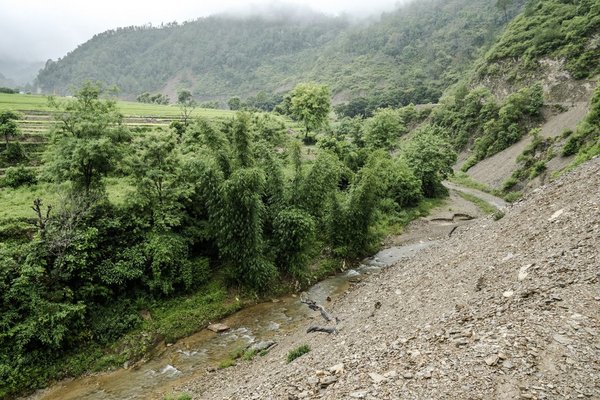 Read this article in French
Read this article in French- Share this article
- Subscribe to our newsletter
Increasing soil loss due to water runoff expected
Soil loss due to water runoff could increase greatly around the world over the next 50 years because of climate change and intensive land cultivation, researchers from the University of Basel warn in August 2020.
Erosion is the process by which soil is carried away by wind and, above all, water. Intensive agricultural land-use and agricultural methods that increase erosion, along with deforestation and overgrazing, are responsible for accelerating the loss of soil. In addition, in some parts of the world climate change is expected to further increase the amount of precipitation that will erode the soil.
Three scenarios predict persistent water erosion
Soil erosion has far-reaching consequences. For example, it results in a loss of fertile soil, reduces agricultural productivity, thereby threatening the food supply for the world’s population. Based on a global model, a new study now predicts how soil loss from water erosion is likely to change by the year 2070.
The researchers based their predictions on three scenarios that are also used by the Intergovernmental Panel on Climate Change (IPCC). The scenarios outline potential developments in the 21st century based on several different socio-economic postulations.
All the scenarios including the effects of climate and land-use change predict persistent water erosion, irrespective of the climate conditions in most of the roughly 200 countries included in the study. At the same time, the results indicate that climate change is the primary factor driving increased soil erosion.
Soil erosion likely to increase by 30 to 60 per cent
Depending on the scenario, the simulations predict that by 2070 soil erosion will increase significantly, by 30 per cent to 66 per cent, compared to 2015 figures. If agricultural practices do not change and measures are not taken to stop global warming, the study predicts that more than 28 billion additional metric tons of soil will be lost annually. This is around two-thirds more than the 43 billion tons estimated for 2015.
The places most vulnerable to a sharp increase in erosion are low- to middle-income tropical and sub-tropical countries. The authors say that it will therefore be critical for countries in the Global South to promote more widespread use of sustainable agricultural practices.
(University of Basel/ile)
Read more at University of Basel website





Add a comment
Be the First to Comment